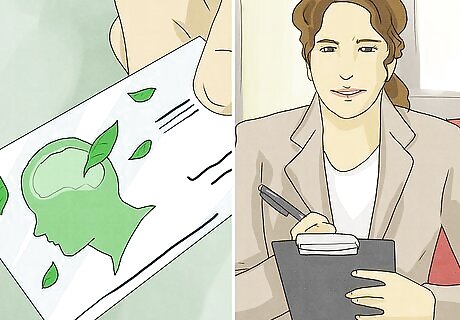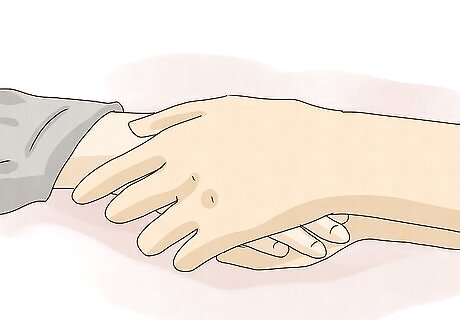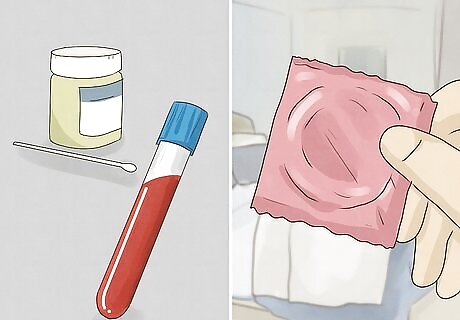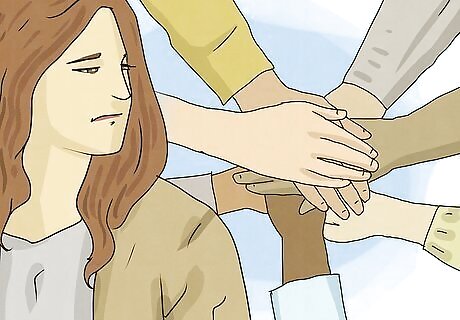
views
What is sex addiction?

Sex addiction is an unhealthy obsession with sex or pornography. More specifically, sex addicts are seeking out those good feelings that come with having sex, like a sense of peace or elation. While many people enjoy sex, people who are addicted to sex take things to the next level, often ignoring their responsibilities or relationships to seek out sex. Some signs of sex addiction include: Having sex with multiple partners Having intense sexual fantasies Using sex to escape from problems or bad feelings Engaging in dangerous or risky sexual behavior
Is it possible to have a relationship with a sex addict?

Yes, it’s possible to have a healthy relationship with a sex addict. Contrary to what it might seem like, sex addicts can have healthy monogamous relationship with their partners. However, this often involves them getting help or treatment for their addiction. Not all sex addicts are unfaithful to their partners. Some sex addicts will curb their urges by using pornography instead of seeking partners outside of the relationship.
How to Be in a Relationship with a Sex Addict

Set boundaries for yourself. Let your partner know what you are and aren’t okay with in your relationship. When you’re in a relationship with an addict, it’s very important to set boundaries for yourself and not let your partner cross them. Tell your partner clearly what you are and aren’t okay with so they know how to respect you in your relationship. “I need you to meet with a therapist once a week and talk about your addiction. Otherwise, I don’t think I can stay in this relationship.” “Since we’re in a monogamous relationship, I’d like you to stay faithful to me. If you cheat on me, I’m ending the relationship.”

Try not to judge your partner. Staying judgment-free will help your partner trust you. Although it might be difficult hearing about your partner’s sex addiction, try to accept them as they are. Thank them for opening up to you and trusting you. “That probably wasn’t easy to talk about. I appreciate you being so open.” “I’ll admit, that was a little tough to hear, but I’m still grateful you told me.”

Encourage your partner to get help. Sex addiction is treatable with help from a mental health professional. If your partner isn’t in treatment already, encourage them to talk to someone about what they’re going through. Your partner can also join a sex addict support group, like Sex Addicts Anonymous. Sex can be a taboo subject, but working with a professional can make a lot of difference for your partner. Make it clear that you want to be with them, but they need to get treatment in order for your relationship to work. “I know you’re struggling with sex addiction, and you’ve made some progress on your own. I really think that a professional could help you even more, and it could make our relationship a lot stronger.”

Support your partner through their recovery. Be there for your partner so they know you have their back. During sex addiction recovery, your partner is probably going to work through a lot of trauma and history to understand their own behavior. The best thing you can do during this time is listen to your partner and offer them a shoulder to cry on whenever they need you. Try to remind your partner that they aren’t alone, and many other people struggle with a sex or pornography addiction. Keep in mind that supporting your partner is different from enabling them. You can support your partner by encouraging them to keep on the path to recovery rather than enabling their bad behavior.

Talk to your partner if you’re uncomfortable. Bring up any problems right away so your partner can make changes. As your partner is in recovery, they might still do or say things that aren’t okay with you. If that happens, sit down with your partner and talk about it right away. That way, they know that they need to make a change and they can work on improving. “You’ve made a lot of progress lately, and I’m really happy for you. However, I did notice that you’re still using pornography almost every day. That makes me feel uncomfortable, and I think you should address it with your therapist.” “I’m working on trusting you, but I can’t do that if you don’t keep me updated. I need you to let me know when you’re going out and when you’ll be home to feel okay with our relationship.”

Forgive your partner if you can. Forgiveness is the only way to move forward without resentment. When your partner is a sex addict, they may have done things in the past that betrayed your trust or hurt your feelings. If your partner is making steps toward recovery, try your best to forgive them so that you can both move forward with the relationship. Forgiveness usually doesn’t come easily unless your partner apologizes. If you haven’t gotten an apology, sit down with your partner and talk to them about the issue. Once you get an apology, forgiveness will just take time. Pay attention to whether or not your partner is changing their behavior to make forgiving them a little bit easier.

Practice safe sex. Use condoms to protect yourself from STIs while your partner is in recovery. Although not all sex addicts are unfaithful, your partner has a higher likelihood of sleeping with someone else while in a relationship with you. Keep yourself safe from STIs and STDs by using condoms or dental dams when you have sex. Remember, your safety is the most important thing here. If you think that your partner has cheated on you, get tested for STIs right away.

Practice relaxation techniques. Dating a sex addict can be stressful, so be kind to yourself. It’s easy to get wrapped up in your partner’s addiction and recovery process. Try to set aside a few minutes for yourself every day to do something relaxing, like yoga, meditation, or light exercise. The more you can make time for yourself, the better (and calmer) you’ll feel. Try practicing self-care by doing something nice for yourself, like soaking in a bubble bath or listening to your favorite music.

Talk to a mental health professional yourself. A professional can help you cope with a sex-addicted partner. Being in a relationship with someone who has a sex addiction can be tough, and it’s important to take care of your own mental health. If you’re struggling, make an appointment with a therapist to talk about what you’re going through. They can help you work through your emotions and give you coping mechanisms so you can move forward. You can find a therapist through online directories like Psychology Today or by going through your insurance plan. If you’d rather go to therapy with your partner, talk to a couple’s counselor instead.

Join a support group. Talk to other people who are going through the same thing as you. Just like your partner can join a support group for sex addicts, you can find a support group for the partners of sex addicts. There, you can discuss how you’re all coping and what you’re going through with like-minded people. Check out local groups in your area or national ones like S-Anon.

Reconsider your relationship if you’re unhappy. You don’t have to stay in a relationship that makes you feel bad. If your partner doesn’t want to get help or they’ve broken your trust too many times, you can reconsider your relationship. It’s tough to break things off with someone you still have feelings for, but if it’s better for your mental health, it might be the best thing for you. Breaking up with your partner is a big decision, and not one that you should take lightly. Be sure to talk things over with your partner and give them a chance to change before you make a decision.



















Comments
0 comment